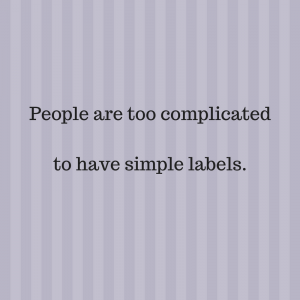 Recently, I came across a simple quote “All mothers are working moms.” With Mother’s Day approaching, I found myself reflecting on the mothers of my mom’s generation and the mothers of my generation.
Recently, I came across a simple quote “All mothers are working moms.” With Mother’s Day approaching, I found myself reflecting on the mothers of my mom’s generation and the mothers of my generation.
We can all visualize a working mom struggling to put on her heels … breakfast bagel stuffed in her mouth muffling her aggravation as she yells for the kids to hurry up for school or she’ll be late for a meeting. It’s a hectic, almost comedic scene often featured in ads sympathizing with the frazzled mom who does it all. We have also encountered the clichéd image of the ‘other’ mom, shuffling in her slippers, making breakfast while she listens to the radio for the weather report to see if the kids need to wear their rain boots.
In my opinion, the representation of a mother’s ‘work’ is frequently inaccurate and divisive. The implication is that one type of mom works harder than the other or has more monetary value. I don’t think I’m reinventing the wheel when I say that stay at home mothers and mothers who work outside the home deal with unfair expectations. In some ways, these stressful demands and stereotypical labels didn’t seem nearly as intense when I was growing up in the 70’s and 80’s. Of course, there were serious issues that moms faced in those days. For example, relatively poor maternity/parental leave, rampant workplace sexism without regulation. Plus, those were the earliest stages of employment equity that leveled the playing field for women, visible minorities, Aboriginal people and people with disabilities.
 In today’s progressive world filled with tolerance and inclusion (which is awesome) what is not so wonderful is the new and sometimes ridiculous pressures on mothers who work outside the home. Usually, these mothers still do the lion’s share of the domestic and childcare duties while balancing their full-time careers. Similarly, for the mothers who are at home working endless, unpaid hours they are supposed to appreciate this rare ‘luxury’ of not needing to work. The truth is that both jobs are challenging, with significant responsibilities, advantages, and disadvantages.
In today’s progressive world filled with tolerance and inclusion (which is awesome) what is not so wonderful is the new and sometimes ridiculous pressures on mothers who work outside the home. Usually, these mothers still do the lion’s share of the domestic and childcare duties while balancing their full-time careers. Similarly, for the mothers who are at home working endless, unpaid hours they are supposed to appreciate this rare ‘luxury’ of not needing to work. The truth is that both jobs are challenging, with significant responsibilities, advantages, and disadvantages.
The Motherhood of Yesterday
 I hate to use the phrase ‘back in my day …’ but while I’ve been reflecting on my childhood memories I can’t help but think of those days to illustrate how much things have changed.
I hate to use the phrase ‘back in my day …’ but while I’ve been reflecting on my childhood memories I can’t help but think of those days to illustrate how much things have changed.
I remember that my mom worked outside the home and some of my friends’ moms didn’t. I can still recall mornings on my street, where moms like mine were rushing to give their kids a hug before heading out to their jobs. And then there were other moms who blew kisses from their front door still in a housecoat as their kids left for school.
It didn’t seem like a big deal how these moms went about their lives. Nobody’s mom was considered better or worse because of where they worked. I don’t recall judgment or a mom hierarchy. One thing was certain though – when our moms were at home with us, they were more present. Maybe the TV was flickering in the living room or the radio played in the kitchen. Perhaps they had a magazine or newspaper flipped open in their lap, but these distractions still felt uncomplicated and less intrusive. Unlike now when so many moms are checking their phones and/or tablets. I don’t remember it being the norm that the phone would ring about work-related issues during dinner. This isn’t to blame moms who are tied to their cells, tablets, and laptops. Due to the conditions of our modern employment, these electronic impositions are often unavoidable. It is a different era and it seems that today’s culture does not respect family or downtime as much, especially if the mother is working outside the home.
The Motherload of Today
Unlike when I was a kid, most of today’s moms have a job outside the home. With this comes the guilt that she didn’t pack an adequate lunch for her kid because she was rushing to finish a report that morning … while simultaneously trying to find her car keys. Later, she receives a rather judgmental call from the kindergarten teacher concerned that the lunch did not comply with the suggested nutritional, nut-free menu emailed to all the parents at the beginning of the year. This is just one of countless demands on working moms. She has to be plugged into all the requests from their children’s schools, daycares, camps, and sports teams, and even birthday parties while trying to manage her professional life.
 Then consider the stay-at-home mother who puts on another layer of concealer under her tired eyes to meet a former co-worker for coffee. She struggles to find a shirt without a spittle stain, and pour out her shoes that have more sand in them than the park. And, during that visit, she has to endure the dreaded and snide questions of “What do you do all day?” or “How can you stay home? Changing diapers and mopping floors… I’d be bored out of my mind.” And then the most common subject broached of the dedicated stay-at-home mom … “When are you going back to work?” That one line often elicits a half wince half smile from an often-exhausted mother. And yet, many people ask this question without realizing that it can feel offensive or diminishing. Plus, if that mother stopped being at home she would have to pay someone or multiple people to do what she does in a day just so she can ‘go back to work.’
Then consider the stay-at-home mother who puts on another layer of concealer under her tired eyes to meet a former co-worker for coffee. She struggles to find a shirt without a spittle stain, and pour out her shoes that have more sand in them than the park. And, during that visit, she has to endure the dreaded and snide questions of “What do you do all day?” or “How can you stay home? Changing diapers and mopping floors… I’d be bored out of my mind.” And then the most common subject broached of the dedicated stay-at-home mom … “When are you going back to work?” That one line often elicits a half wince half smile from an often-exhausted mother. And yet, many people ask this question without realizing that it can feel offensive or diminishing. Plus, if that mother stopped being at home she would have to pay someone or multiple people to do what she does in a day just so she can ‘go back to work.’
Stated or unstated, the struggle is real. It could be a mom struggling to balance her business while still having time for her family, or the mom who is unsure if she should remain at home or seek full-time employment and place her child(ren) in daycare. Each decision is personal and has many complicated implications.
Any moms (or dads) are welcome to contact me by email, phone, or direct message on Twitter, Facebook, or LinkedIn to discuss career or HR related issues — including how to manage the work/life merge. As always, I offer a no-obligation 15 – 20-minute free initial consultation.
More than career coaching, it’s career psychology®.
I/O Advisory Services – Building Resilient Careers and Organizations.™
Easily share this article using any of the social media icons below.




